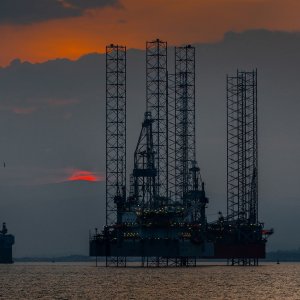
Private Production Falls in July
 By Conal Quinn | Journalist & Industry Analyst -
Thu, 09/01/2022 - 09:06
By Conal Quinn | Journalist & Industry Analyst -
Thu, 09/01/2022 - 09:06
This week, CNH released its monthly extraction report, which showed that oil and gas production for private operators fell for the first time in two months. In July, oil production fell by 2Mb/d the month previous to an average of 1.74Mb/d, largely due to lower pumping rates from private companies. By contrast, PEMEX’s production saw a 0.35 percent increase of 6Mb/d compared to the same month in 2021. The latest average output of 1.69MMb/d has put the NOC on track to surpass 1.7MMb/d next month for the first time since before the effects of the pandemic were felt in April 2020.
The net volume drop-off of 1.83 percent was mainly caused by a significant decrease in Eni's extraction rate in the Amoca, Miztón and Tecoalli (AMT) fields. Eni faced delays at its Area 1 assets as a result of what CNH sources described as “unexpected behavior of the wells.” In place of Eni’s AMT, Fieldwood Energy’s Ichalkil and Pokoch fields led the private contracts with the highest production in July. Fieldwood Energy began commercial production at the Ichalkil and Pokoch fields in November 2021, which feature projected reserves of 564MMboe.
According to CNH, the production of the Ichalkil and Pokoch fields sat at 22.636Mb/d, which represents a 2.07 percent decrease compared to June. The eponymous field from Hokchi, another key private producer, meanwhile reported an average output of 20.627Mb/d, maintaining its second-place position.
Despite achieving a 100Mb/d production milestone in May, this year has once again been a challenging one for private operators. So far this year, seven contractual areas won in bidding rounds held after the 2014 Energy Reform have been handed back over to the Mexican state. This week, Iberoamericana de hidrocarburos became the latest private player to relinquish control when it returned the entire CNH-R02-L02-A1.BG/2017 contractual area, stating it was of no commercial value to the company. This follows supermajor BP’s high-profile decision to end its participation in the Mexican upstream sector when it abandoned its last remaining contractual area, a 735km2 shallow water block, once the initial exploration period ended without striking oil.
Similarly, June saw Hokchi Energy return the totality of a shallow water contract off the coast of Veracruz, while in March CNH authorized Repsol to initiate the process of relinquishing part of contractual area R03-L01-G-BG-07/2018. At the end of February, CNH approved an early termination procedure for Total E&P’s contract, CNH-R01-L04-A2.CPP/2016 while the subsidiary of the Malaysian IOC Petronas, PC Carigali, relinquished 841km2 of the 2,106km2 of the area obtained in Round 2.4 in deep waters of the Gulf of Mexico.
On a more positive note for private players, the Energy Regulatory Commission (CRE) granted both Hokchi Energy and Carso Oil & Gas permits to commercialize hydrocarbons extracted from three contractual areas won in Bidding Rounds 2 and 3. In the most recent ordinary session of the governing body, held on August 30, 2022, Carso Oil & Gas was granted permission to commercialize blocks 12 from onshore contracts CNH-R02-L03-CS-04-2017 and CNH-R02-L03-CS-05/2017, with no production reported to date in said contract areas. Meanwhile, Hokchi Energy received the authorization to sell the hydrocarbons extracted from contractual area CNH-R03-L01-AS-CS-15/2018, with information still unavailable on CNH’s website regarding oil and gas production at the site in question.
















